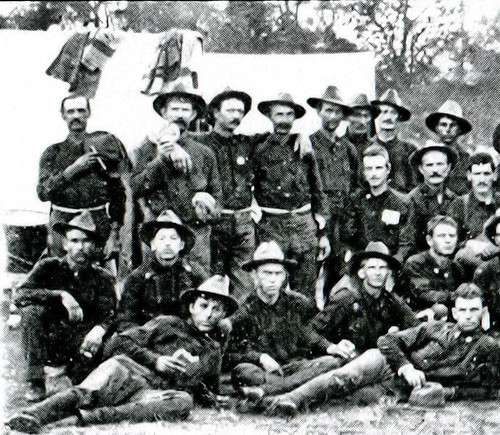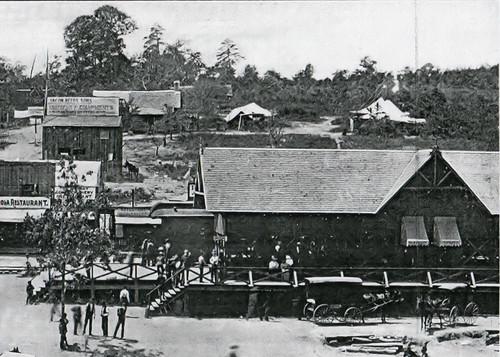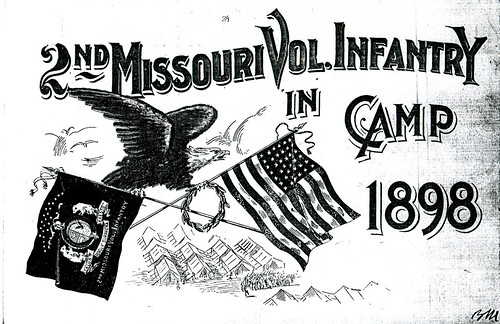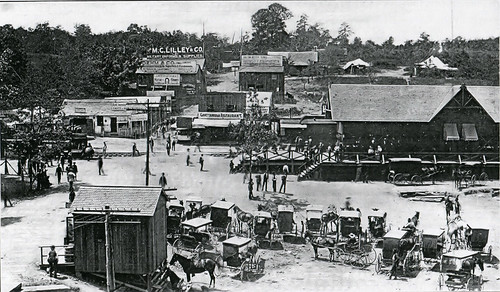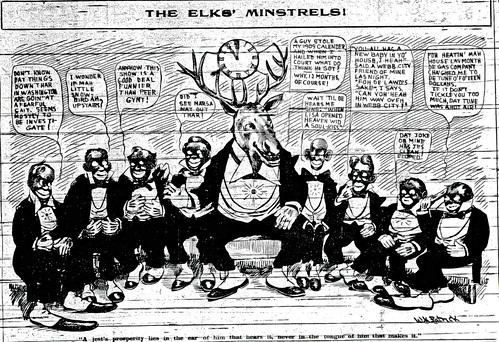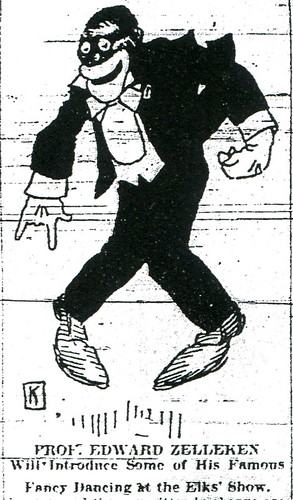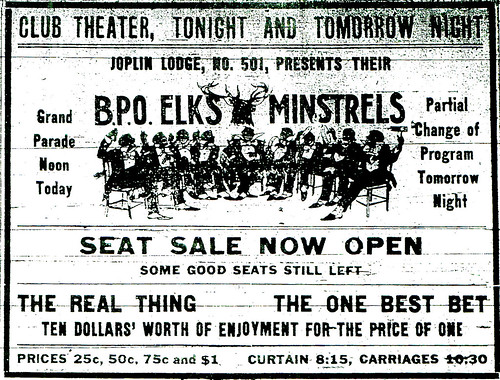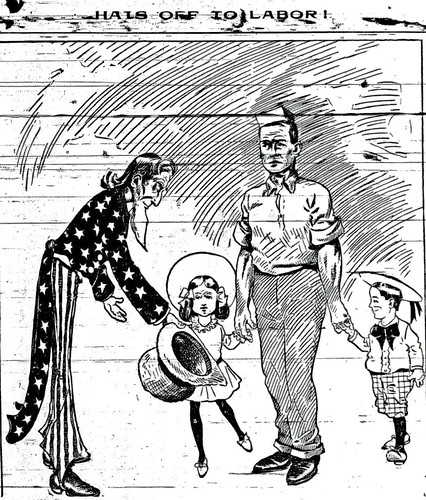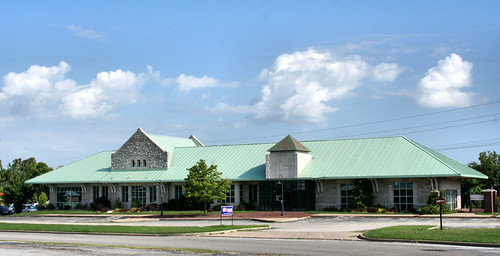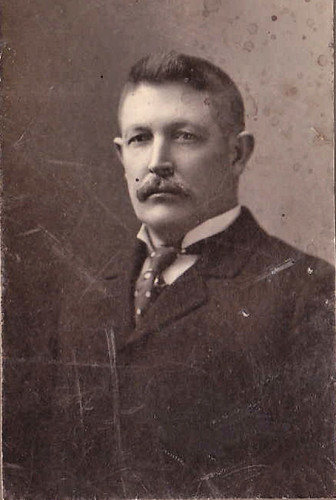Previously, we told you about the men of Joplin who marched off to war as Company G of the 2nd Missouri Volunteer Infantry. Today we bring you the first of three letters from those men. The first comes from Fred Hinkley, who wrote from Camp Thomas, Chickamauga, Georgia, dated June 19, 1898 to the Joplin News Herald:
“As this is Sunday and all drills are dispensed with I will inform the Joplin people of the doings of the Second Missouri, at Chickamauga. We had the most rigid inspection by Major-General Slocum Monday that the Second has undergone. It was for the purpose of determining if the Second should go to the front or stay here; also to condemn guns. We will receive our new guns tomorrow and our ordinance supplies in a few days.
The Major in conversation with Col. Caffee said that out of nine regiments inspected there were two very good, the Second being one of them, and further, that if his word went for anything, the Second should be the first regiment out after the South Carolina men which will go first as Gen. Lee asked the War Department to have that regiment assigned to his command.
The new recruits are arriving now in squads of twenty-five, the first to reach here being the detail from Springfield which arrived Friday morning. The next detail to arrive was from Sedalia with 22 men, and the Joplin recruits arrived this morning 32 in number.
The men are distributed among the companies. Company G now having seven recruits, but none from Joplin. The recruits are taken charge of by the First Sergeant, shown the rules and regulations of a regular, then turned over to the cooks who have them carry a little water and wood just to get used to it.
One of the new men assigned to Company G fell in for mess call and when the cooks gave him black coffee and bread without butter he turned to the boys and said, “Boys, I wasn’t raised in a castle, but I cannot drink coffee without milk or eat bread without butter,” and he handed his dinner to one of the men, but this morning he was noticed going back the second time for more “bare-footed” coffee.
The health of the regiment and especially of Company G, is fine, they not having a man for the hospital this morning.
NOTES.
Sergeant Watson and Kid got leave of absence this morning for six hours, and went blackberrying. About 2 hours later they returned with a tomato can about half full and said they would take an oath that they had to walk 10 miles for them, but later the boys found out that they had got lost and gave a farmer 20 cents to haul them back to camp.
Sergeant Tschappler is one of the busiest men in camp and when not on duty he is very busy writing a book. He writes about 40 pages, puts it in an envelope, sends it to Carthage, and it doesn’t go to the book bindery either.
The Joplin recruits brought Private McCullough’s pet coon with them. It has been in camp about 9 hours and has bitten only 9 of the boys.
On account of the fracas at Lytle last Sunday no one is allowed to go to Lytle without a written permit signed by the colonel.
Sergeant Sansom has been on the sick list for several days but is a great deal better tday.
The boys were all pleased to see “Cholly” Burnham but were greatly disappointed when he was assigned to Company A of Carthage.
Private Dunwoody and Eckhart are two of the sickest (love-sick) men we have in camp.
Corporal Kelley is now one of the proudest men in camp. He has a beard of the strawberry variety that would make a New York policeman leave his beat in disgust.
One of the men in our company concluded that it was too warm to drill Saturday morning so he hied himself to the Y.M.C.A. tent about drill time but Sergeant Tschappler happened to call the roll and he was hunted up and given 12 hours in the guard house and six day’s extra duty.
A Chicago corporal got himself in the guard house by getting gay when Gen. Brooke approached. The corporal had a vague idea that when so distinguished an officer approached he should be complimented by a general salutation of the guard. His order should have been, “Turn out the guard for the commanding officer,” but he became disconcerted and just as the general reached his tent, the corporal bawled out, “Turn out de push and duck: here comes de main guy.”
You can tell the Joplin people to look out for soldier’s letters, as everyone is broke and stamps are at a premium.
Fred T. Hinckley”
Source: History of the Second Regiment, Joplin News Herald

